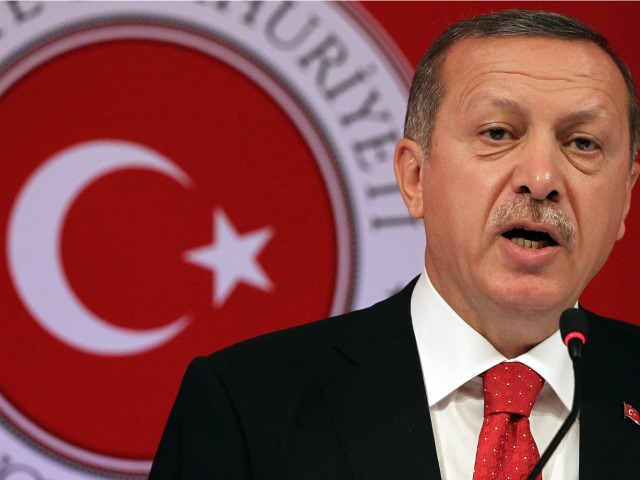
Turkish President Tayyip Erdogan has expanded the powers of Turkey’s secret service and granted agents immunity, while the government plans to pass a bill that would sentence journalists to ten years in prison for publishing leaks. The moves come as Erdogan cracks down on opposition forces accusing him of corruption.
The BBC reports that Erdogan’s new laws would give Turkey’s secret service, known as MIT, extensive surveillance powers to monitor opposition groups in the country. It would allow for significantly freer intelligence gathering and encourage counterintelligence operations against enemies of the government, which opposition leaders in the legislature vehemently oppose.
The law would also gives MIT agents expanded immunity powers relating specifically to MIT work that requires some skirting of the law.
The particularly controversial proposal in the bill is a proposal to allow judges to sentence journalists for up to ten years for publishing leaked information brought to them by whistleblowers, including video or audio tapes. This provision follows the release of a number of audio tapes allegedly of phone calls Erdogan has made, including a particularly controversial one posted on social media in which it appears Erdogan and his son are scheming to hide large sums of money.
The BBC notes that these laws, following attempts by Erdogan to ban social media vehicles like YouTube and Twitter, are receiving significant pushback from opposition leaders. Kemal Kilicdaroglu, leader of the main opposition Republican People’s Party, warned that Turkey could become an “intelligence state” under the new provisions, even more so than some in the opposition argue the state currently is.
Erdogan also announced that Turkey has begun proceedings to extradite Islamic cleric Fethullah Gulen, a Turkish citizen living in exile in Pennsylvania. Gulen’s teachings are said to have fueled the opposition into organizing against Erdogan, and the president considers him an enemy, after the government accused Gulen of inappropriate Islamic activities.
Speaking to Charlie Rose, Erdogan said that Gulen was involved in “an effort to take away some power, and these efforts involved the security forces and judiciary.” These efforts, he added, “were unacceptable to me” because they were an attempt to stage a coup. He added that “the first step that they took was against the secretary of the national intelligence agency,” implying that this agency more than any needed to be protected from the opposition.
Erdogan went on to say that he fully expected the United States to cooperate and extradite Gulen, as a threat to his government would be a threat to any government. “These elements which threaten the national security of Turkey cannot be allowed to exist in other countries because what they do to us here, they might do against their host,” Erdogan said, according to transcripts. He also relied on what he considered a positive relationship with Washington to see the extradition happen.

COMMENTS
Please let us know if you're having issues with commenting.